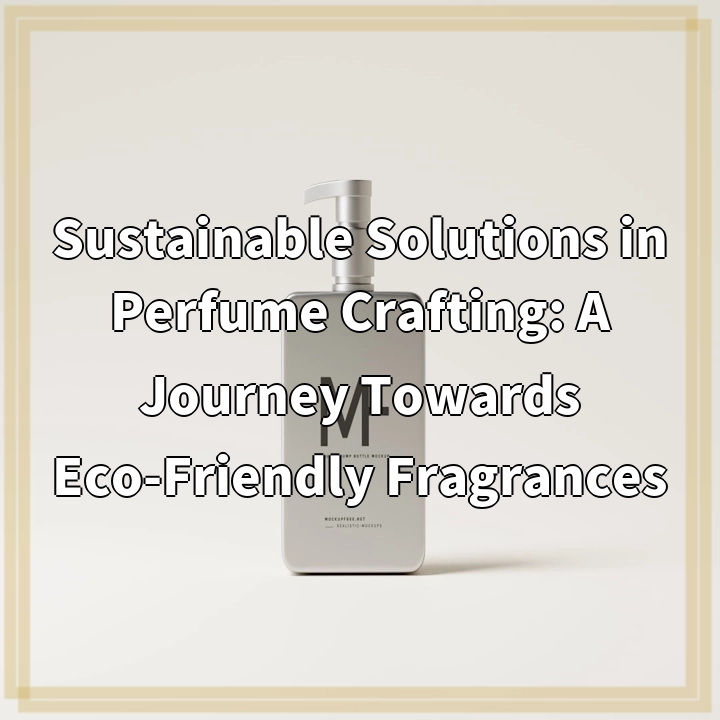Physical Address
304 North Cardinal St.
Dorchester Center, MA 02124
Physical Address
304 North Cardinal St.
Dorchester Center, MA 02124

In recent years, there has been a growing interest in sustainable solutions for perfume crafting, as the fragrance industry faces increasing scrutiny for its environmental impact. Perfume crafting involves the extraction and synthesis of aromatic compounds to create unique scents. Traditionally, this process has relied heavily on synthetic chemicals and high energy consumption, resulting in significant environmental degradation.
The perfume industry is a major contributor to air and water pollution. Synthetic fragrance compounds, such as phthalates and musks, have been found to accumulate in the environment and impact aquatic ecosystems. Additionally, the production and disposal of perfume packaging contribute to plastic waste, further worsening the pollution problem.
The extraction of natural fragrance ingredients, such as flowers and plant materials, can lead to the overexploitation of resources. This not only jeopardizes the biodiversity of certain regions but also disrupts the delicate ecological balance. Furthermore, the energy-intensive processes involved in fragrance production contribute to carbon emissions and energy consumption, leading to further resource depletion and climate change.
Traditional perfume crafting methods often involve the use of animal-derived ingredients, such as musk and civet. These ingredients are obtained through unethical practices, such as animal trapping or killing. Animal rights advocates have raised concerns about the cruelty involved in obtaining these ingredients, leading to increased demand for cruelty-free and vegan-friendly fragrances.
Consumers are becoming increasingly conscious of the products they use and are demanding more transparency from companies. However, the perfume industry has traditionally been shrouded in secrecy, with fragrance formulations kept as trade secrets. This lack of transparency makes it difficult for consumers to make informed choices and holds companies less accountable for their environmental impact.
Addressing the environmental challenges associated with perfume crafting requires innovative solutions and a shift towards eco-friendly practices. Here are some potential solutions to foster sustainability in the fragrance industry:
Utilizing natural and organic ingredients in perfume crafting reduces reliance on synthetic chemicals and minimizes the environmental impact. Sustainable sourcing and cultivation of botanical materials can help preserve biodiversity and support local communities. Additionally, certified organic ingredients ensure that no harmful pesticides or chemicals are used in the production process.
Developing and adopting eco-friendly extraction methods helps reduce the carbon footprint of perfume production. Technologies like CO2 extraction or innovative solvent-free techniques minimize energy consumption and eliminate the use of environmentally harmful solvents, improving the overall sustainability of the process.
Shifting towards renewable energy sources, such as solar or wind power, can significantly reduce carbon emissions associated with fragrance production. Embracing energy-efficient practices, such as optimizing production processes and implementing sustainable logistics, further contributes to minimizing the industry’s environmental footprint.
Exploring alternative packaging materials and design that promote circularity can help reduce waste in the perfume industry. Using recycled or biodegradable materials for packaging and adopting refillable or reusable bottle systems can significantly reduce the amount of plastic waste generated by perfumes.
Increasing transparency within the fragrance industry is crucial to empower consumers to make informed choices. Providing clear and comprehensive information about perfume formulations, sourcing practices, and environmental impact allows consumers to support brands that align with their sustainability values.
By implementing these solutions and fostering a collective commitment to sustainability, the fragrance industry can embark on a journey towards eco-friendly perfumes that prioritize both the wellbeing of the environment and consumer values.
If you’re wondering where the article came from!
#